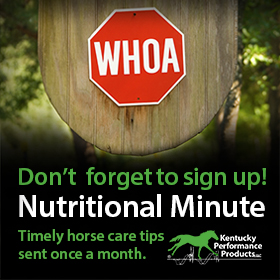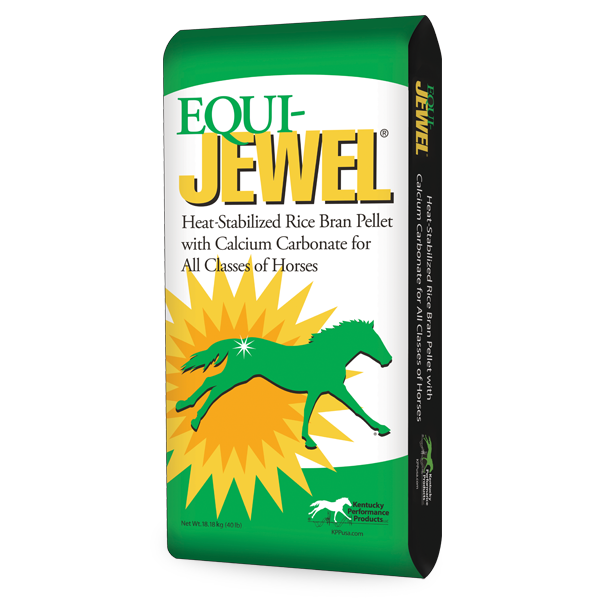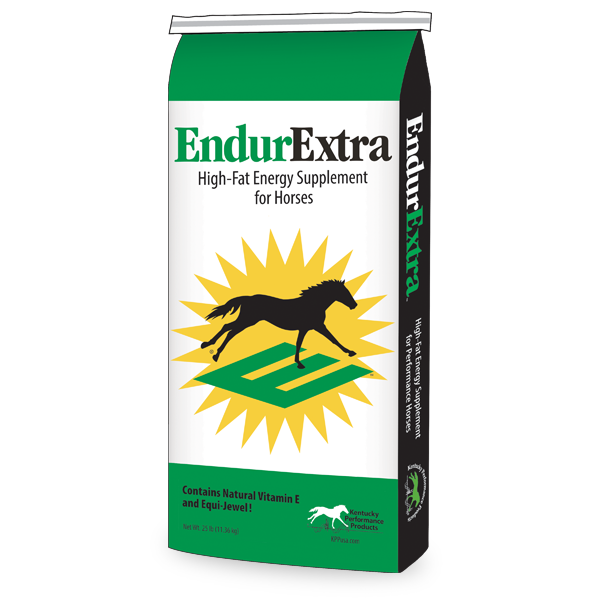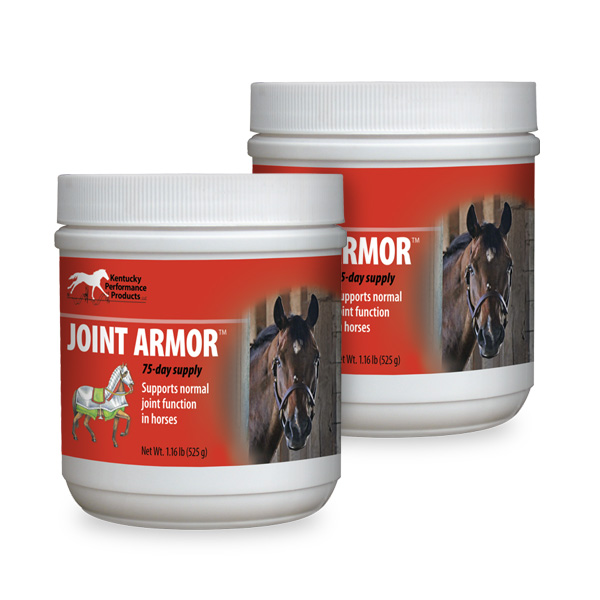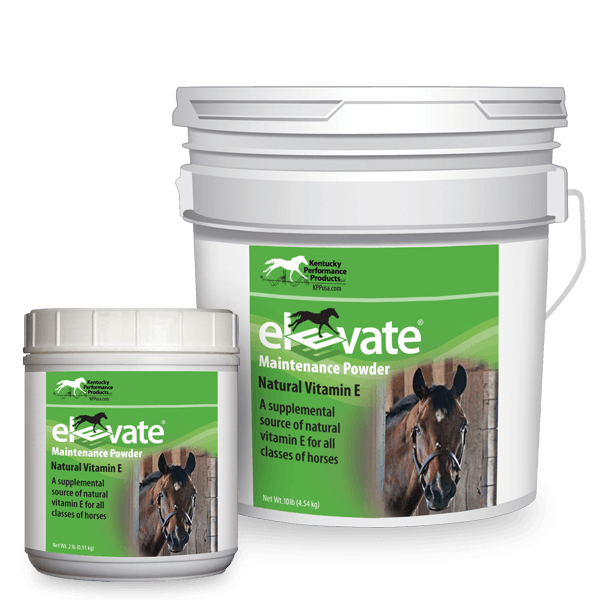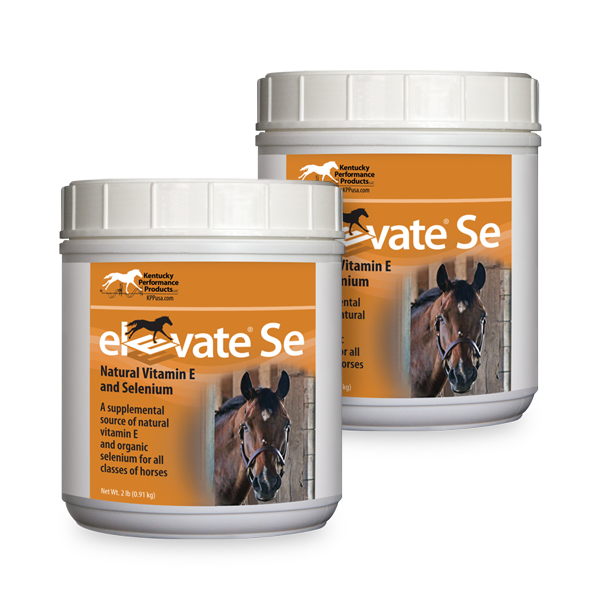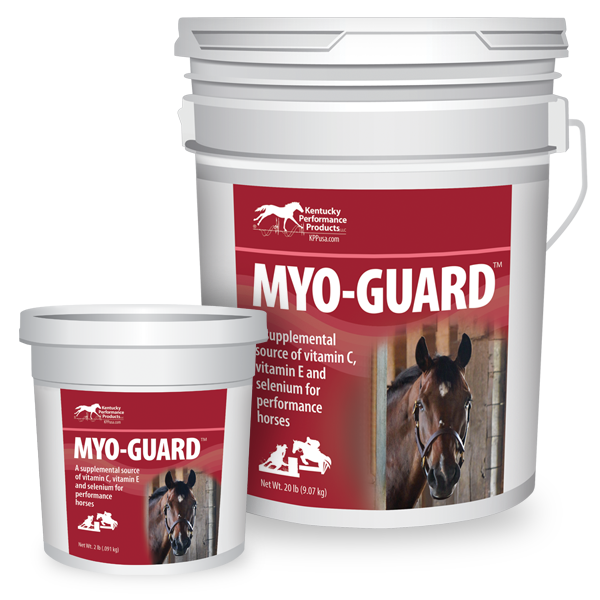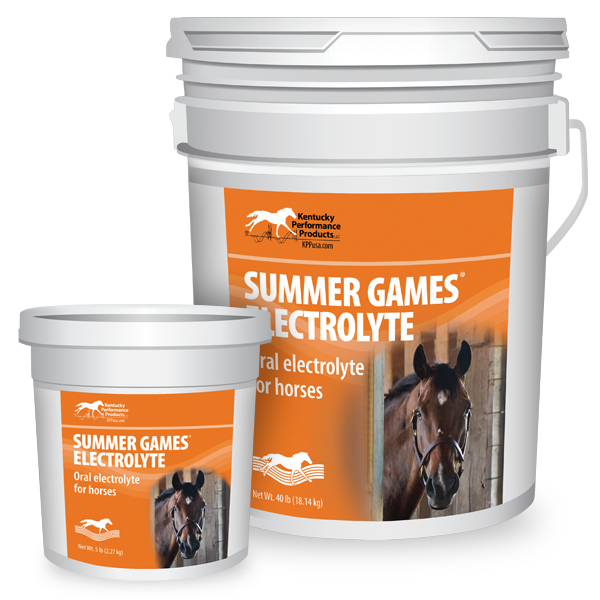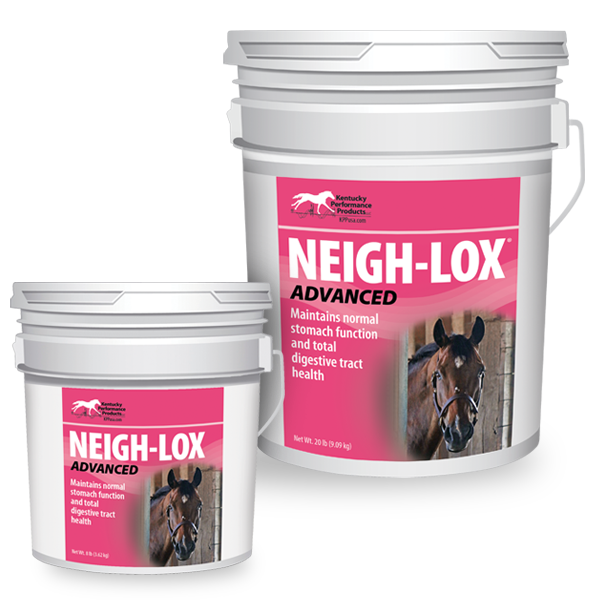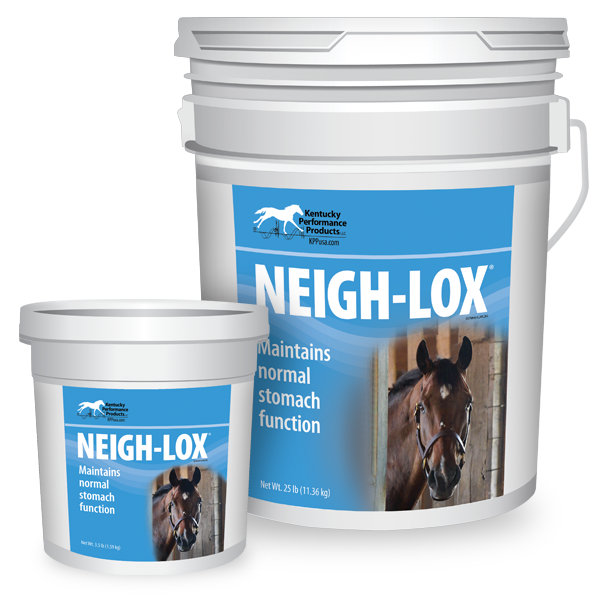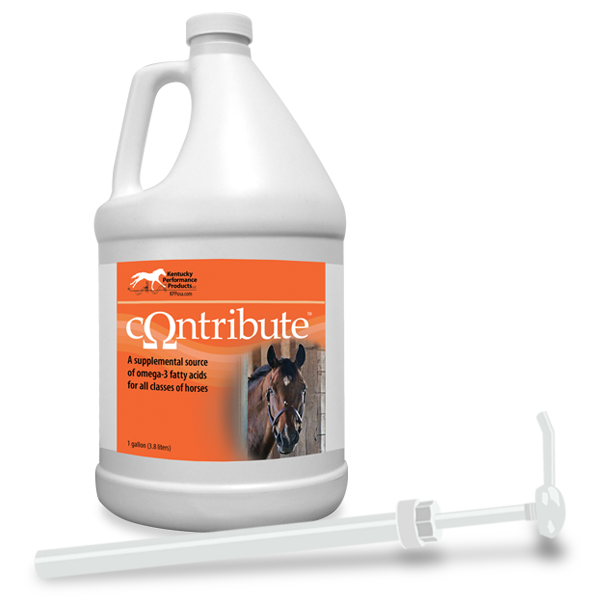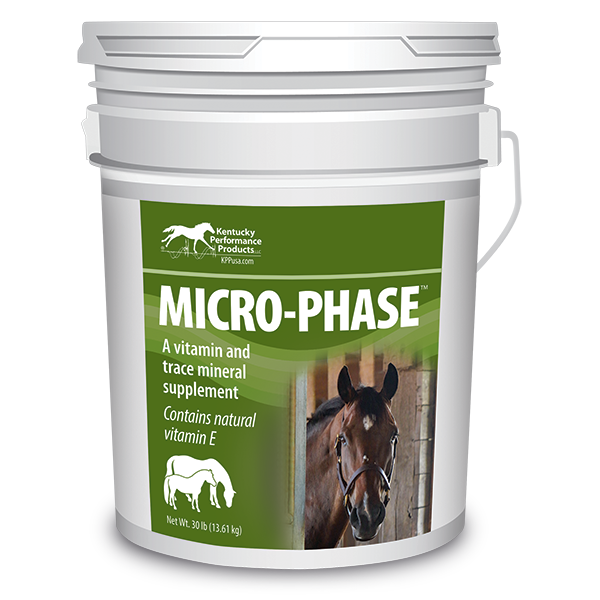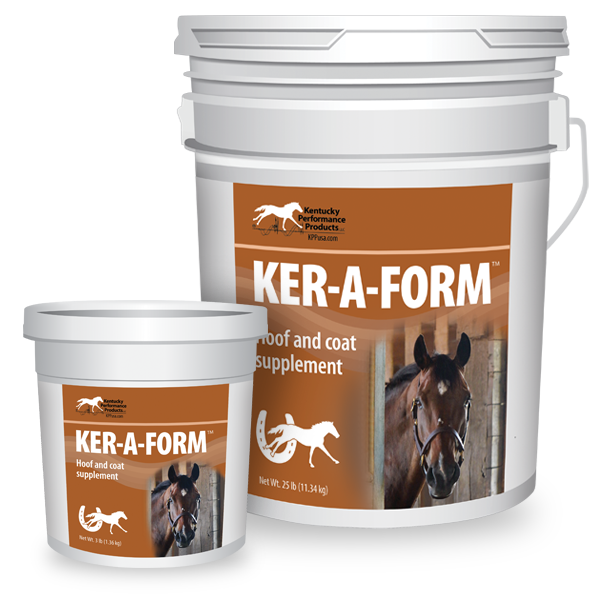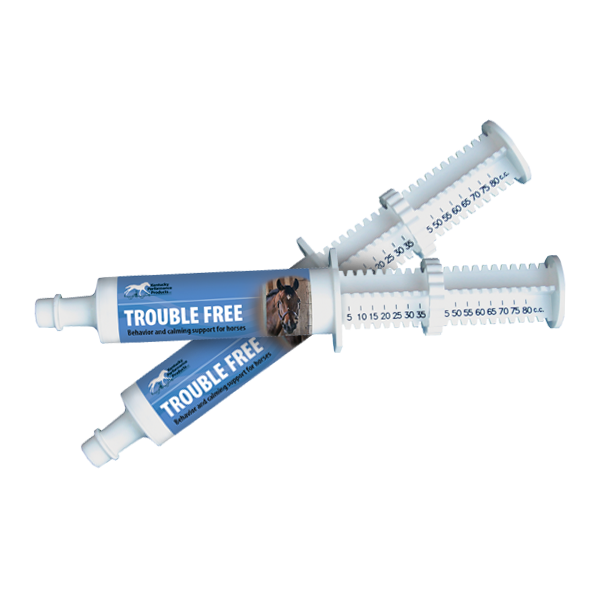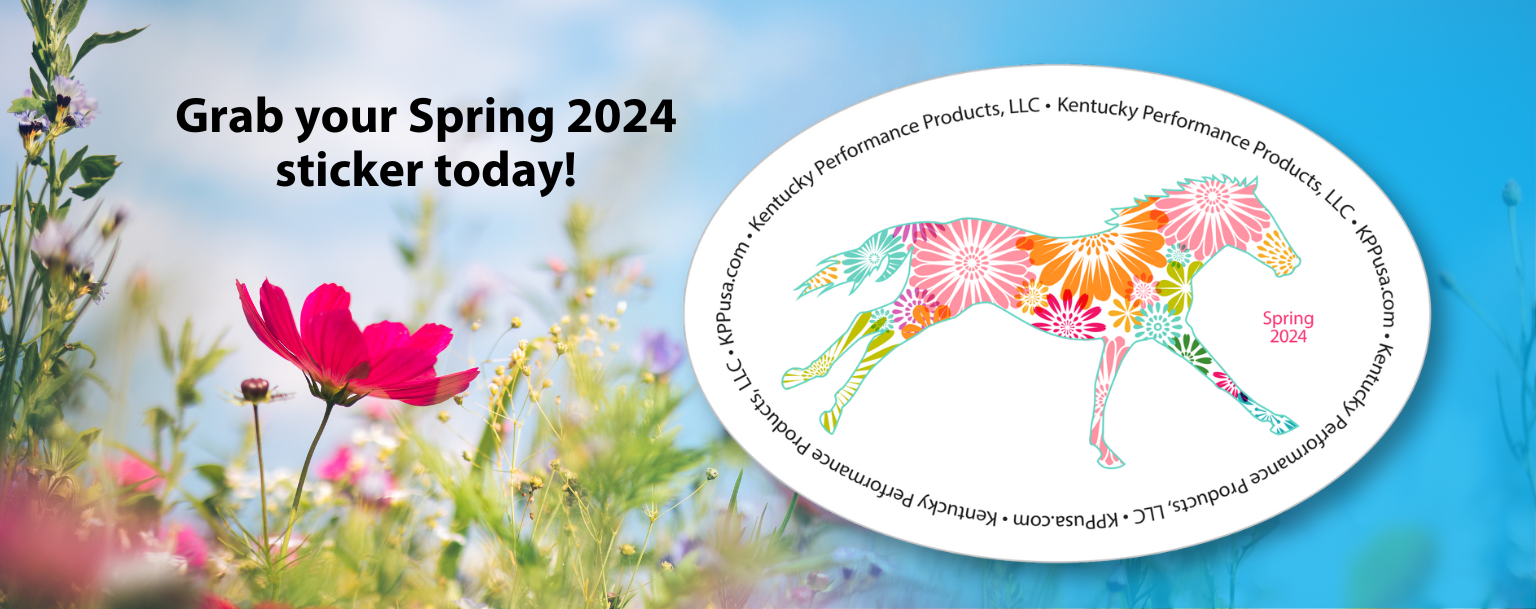From weekend warriors to olympic athletes
Horses that exercise routinely need more energy and nutrients than horses that hang out in the field all day.
The most significant difference between the diets of lightly working horses, moderately working horses, and hard-working athletes is their caloric content. The harder horses work, the more energy they require to maintain their weight and do their jobs. Energy is supplied to a horse in several forms: forages (grass, hay, hay pellets, or cubes), concentrates (plain grains, pelleted grain mixes, and sweet feed) and supplements.
Types of energy
Proteins, carbohydrates, and fats can all be used as energy.
Proteins are not good energy sources for mature horses because proteins are not utilized efficiently.
The carbohydrates know as sugars and starches are found in grain-based concentrates and have been traditionally used as a main source of calories for performance horses. These carbs are digested in the foregut. Equine nutritionists have recently learned that horses have a limited capacity to digest sugars and starches. When a big grain meal (over 4 lbs in one serving) is fed, it can overwhelm the ability of the foregut to fully digest the feed. The extra sugars and starches “escape” into the hindgut and cause imbalances in the sensitive microbe population. These imbalances can lead to colic and laminitis. It is best to limit the amounts of starch and sugar you feed your horses.
The complex carbohydrates found in forages are fermented and absorbed in the horse’s hindgut with the help of beneficial microbes that live there. Forages are high in fiber and are very good energy sources for a horse; however, they are not very energy-dense, so for hard-working horses forages alone may not provide enough calories.
Fats are a very good source of energy for horses. They are easy to digest once a horse is accustomed to them and don’t cause imbalances in the hindgut. Fats are also energy-dense, providing 2.25 times as much energy as the same amount of carbohydrates, so you can reduce your horse’s meal size and lower the risk of hindgut imbalances.
Digestive health is a key factor in top performance.
Keeping your performance horses’ digestive tract healthy is key, and considering their stressful lifestyle, it is not always easy. When the GI tract is out of whack, horses don’t digest their food correctly, so they don’t absorb the energy and nutrients they need to perform. They don’t feel good and they are at risk for developing devastating illnesses such as colic and laminitis. Protecting your horse’s stomach with an antacid to neutralize excess acid and providing nourishment to the beneficial bacteria in the hindgut are excellent preventative measures you can incorporate into your management regimen. Reducing inflammation, supporting healing of irritated tissues, and maintaining proper pH levels throughout the system all contribute to excellent GI tract health. Since your horse’s immune system is directly related to his or her GI tract health, horses with a healthy gut also have a robust immune system.
Performance horses need additional antioxidant support.
Horses that are using their muscles to perform have higher antioxidant requirements than horses at rest. As muscles work, they produce free radicals that can damage cell membranes. To defend themselves against these free radicals, horses call upon antioxidants like natural vitamin E and selenium to scavenge the free radicals and render them harmless. Grass is the best source of natural vitamin E, but many working horses have busy training and competition schedules, which preclude them from grazing for long periods on fresh forage. In dried forages, like hay, vitamin E levels drop quickly after harvest. When your horse’s diet is deficient in antioxidants, his or her reserves run low and the free radicals are left unchecked, causing inflammation and damage to muscle, nerve and other cells. Recent studies have linked the development of Equine Motor Neuron Disease to horses that exhibit low natural vitamin E levels. Supplementing with natural vitamin E is essential in hard-working horses or those that are not consuming significant quantities of fresh green grass.
Support for coat and hooves:
Constant exercise, frequent shoeing, and the rigors of competition can put a lot of extra stress on your horse’s hooves. Sweating and frequent bathing can damage your horse’s hair coat, mane, and tail. The same nutrients that nourish the hoof also keep your horse’s hair resilient and healthy.
Hooves are made up of a very tough tissue called keratin. Keratin bonds are formed with the help of the B vitamin biotin. When biotin is lacking, horses can suffer from brittle, dry hooves that easily crack and fall apart. While most horses produce enough B vitamins in their digestive tract, nutritionists feel they may not produce enough biotin to meet the increased demands facing the performance horse. Concentrates provide some biotin, but they usually fall well short of the 20 mg recommended by researchers. Trace minerals and essential amino acids (the building blocks of proteins) play a significant part in maintaining healthy coat and hooves. Lysine, methionine, iodine, and zinc are all needed to grow a healthy hoof wall and resilient manes and tails. Fats play a role in the maintenance of strong hooves and shiny hair coat as well. Fat contributes to the moisture barrier in the hoof. This barrier balances the moisture levels in the hoof so it doesn’t get too dry and brittle or too moist and soft. Fat adds oils to the skin, which protect it from drying and cracking. Horses that are consuming fats will have shiny hair coats, soft skin, and easy-to-manage manes and tails. A well-balanced hoof and coat supplement will ensure your horse has the tough feet and brilliant coat he needs to be a winner.
Hydration and electrolyte status:
Loss of electrolytes causes fatigue and muscle weakness, and decreases the thirst response. Horses are at high risk of developing dehydration that can lead to neuromuscular disorders, colic, and other life-threatening conditions.
Horses generate a tremendous amount of heat in their bodies when they exercise or when they are stressed. When the core body temperature rises, the sweat response is triggered. Sweat is nature’s way of cooling the horse’s body through evaporation off the surface of the skin, and it helps keep his core temperature at normal levels. Sweat is made up of fluid and electrolytes, so when horses sweat they lose both water and minerals. Exercise can lead to dehydration when a horse is unable to rehydrate adequately during and after exercise. Dehydration leads to a change in osmotic pressure that signals the metabolic system to begin shutting down. It also decreases the thirst response, so your horse stops drinking, making matters worse. We have learned that proper hydration is extremely important, not only to optimal performance but to the overall well-being of the horse. The administration of a well-balanced electrolyte supplement, developed to replenish the electrolytes and trace minerals lost in sweat, will lower the risk of exercise-induced dehydration.
Thirst, the desire to drink, is stimulated when electrolyte concentrations in the blood rise, signaling the body to get a drink. In the horse, when large proportions of electrolytes are lost due to sweating, the concentrations of electrolytes in the blood remain static, and even though the horse is dehydrated he does not get the physiological signal to drink. By replacing the electrolytes lost during sweating the signal to drink remains “turned on.” Since the ratios of electrolytes are critical to maintaining the correct electrolyte balance, it is important to offer an electrolyte that provides the correct electrolytes in the proper ratios. It is also very important to always provide free access to fresh water when a horse is being supplemented with electrolytes.
Training regimens, competition schedules, stable management, and diet all play a role in supporting the equine athlete. There are many nutrients that can support your horse’s ability to perform and help him or her to maintain excellent health.
Important considerations:
Fat
Energy can be the first limiting factor affecting an equine athlete’s ability to perform. High-quality vegetable fat is an ideal source of supplemental calories for hard-working horses. The highly digestible energy is safe because it allows you to offer excess calories that are not derived from grains. Excessive starch and sugar intake may negatively impact the equine hindgut, increase the incidence of gastric and colonic ulcers, and cause excitability in some horses. Vegetable fat from high-quality sources, such as rice bran, offers calories in a safe and highly effective form. In addition, fat is a “cool” form of energy, meaning it does not cause a spike in blood glucose, thereby decreasing excitability.
Glucosamine, chondroitin, hyaluronic acid
When horses land on the off side of a jump or drive their legs into the dirt on the track, their joints are constantly being stressed. Supporting your athlete’s complex system of joints can aid him in working longer and more soundly. High-quality glucosamine, chondroitin, and hyaluronic acid can act in concert to minimize inflammation and aid in the repair of stressed joints.
Natural vitamin E
Working horses are stressed horses, so supplementing with natural vitamin E can help ensure your athlete’s immune system is also functioning optimally. Vitamin E also plays important roles in minimizing muscle damage from excessive free radical production, as well as aiding in muscle recovery post-workout.
Electrolytes
Horses are among the few animals besides humans that cool themselves by sweating, and hard-working horses sweat a lot! Therefore, vital electrolytes lost in both urine and sweat must be replenished. Using the right electrolyte can help prevent a lot of problems for your exercising horse. Be sure your electrolyte supplement does not contain excessive amounts of sugar (dextrose) so as to ensure the right balance of electrolyte minerals are available to your horse’s systems. Excess dextrose can upset this balance. Your electrolyte paste or powder should taste salty, not sweet.
Biotin, zinc, iodine, methionine, lysine, and fatty acids
Critical nutrients like those listed above must be present in the correct amounts in a horse’s diet or skin, hooves, and hair will suffer. A well-formulated hoof and coat supplement can supply these nutrients.
Yeasts, fermentation metabolites, gastric buffers, and gastric coating agents
These ingredients play an essential role in maintaining a healthy digestive tract in horses that are on the go or under stress. Supporting optimal pH levels throughout the GI tract and nourishing the beneficial bacteria minimizes the risk of gastric and colonic ulcers. Imbalances caused by disturbances to the sensitive microbial populations are less likely to occur, reducing the incidence of colic, diarrhea, and laminitis.
Omega-3 fatty acids
Horses evolved to exist on a grass-based diet that contained both omega-3 and omega-6 fatty acids. Both of these fatty acids are necessary, but the ratio of one to the other is critical. Grass contains high levels of anti-inflammatory omega-3 fatty acids and low levels of pro-inflammatory omega-6 fatty acids; this is a healthy ratio for your horse. Modern diets, especially those fed to hard-working performance horses, tend to include ingredients such as grains that are high in omega-6 and low in omega-3 fatty acids, throwing the critical 6 to 3 ratio out of whack and leading to health problems. Supplementing with a high-quality omega-3 fatty acid brings that ratio back into balance and supports reduced levels of damaging inflammation.
In performance horses in particular, studies have shown omega-3 fatty acids to be beneficial in increasing stride length, indicating they play a role in maintaining joint health. Horses supplemented with omega-3 fatty acids from plant and marine sources exhibit a reduced inflammatory response to exercise, increasing the likeliness that they will remain sound and healthy. Current studies are looking at the possible benefits of supplementation with omega-3 in decreasing exercise-induced pulmonary hemorrhage (EIPH), commonly referred to as “bleeding” in performance horses.


